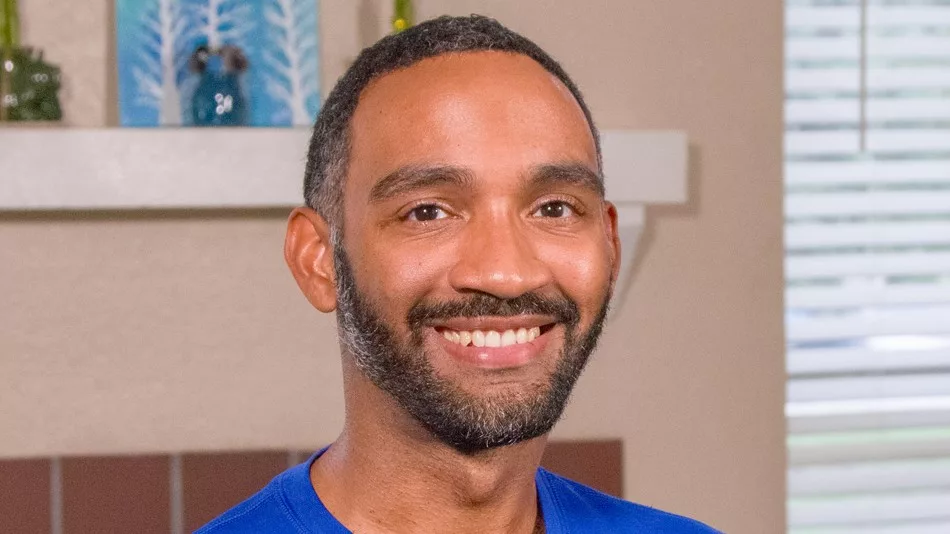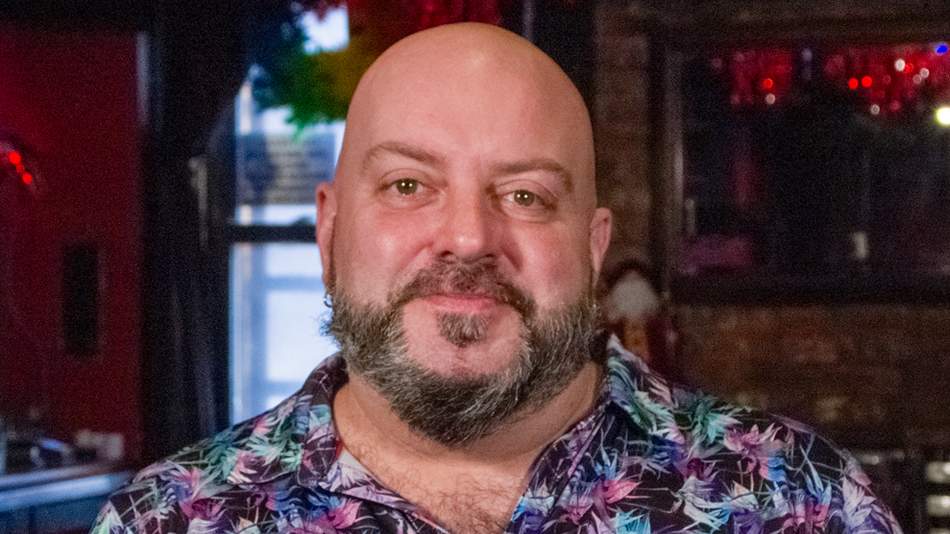My name is James Felton Keith. I’m from Detroit Michigan. I moved back home in 2014 to work for the newly elected mayor of Detroit. A few days before I was supposed to start work on a Monday I was asked to come in on Friday to kind of get an ID badge and meet some of the team and get a feel for the office that I would be working in. The first person I met was this fairly tall brown-skinned woman with shiny gray hair. It was like platinum. And she had the sweetest up-do. It looked kind of like a few of my aunts, kind of like my grandmother’s hair. She’s just cool. She was excited that I was there because at this time it was the first white mayor that Detroit had since 1974 and they were happy for as many black staff to come back or talent to come back into the city. I was sitting, getting ready to take my picture for my badge. This is early in the morning, this is about thirty minutes to an hour after I first met my new auntie. These two white gay guys came into the office to get their badges. And she introduced me to them, it was very cordial, very professional. The two guys leave, they leave the room. She nudges me and says, “You know, these white gay guys are coming to take all our jobs.” And my first reaction was to kind of smirk or laugh but I knew that it was wrong. I was also in the city to assume the role as the president of the new newly-established LGBT Chamber of Commerce. And having to kind of wear my truth on my sleeve, I let her know that I’m also here to work with the LGBT Chamber of Commerce. And she paused and said, you know, like, “You too?” I say, “Yeah, I’m with them.” And she said, “Oh, you know it’s fine, it’s fine. I was just saying, I was just letting you know that, you know, they’re here and they’re getting a lot of these jobs. You know what I mean.” So during my time in the administration, I agreed to take an interview in the mayor’s office with their LGBT media which was a magazine called Pridesource. And during Pride week I also agreed to go to all the Pride events available. I posted quite a few pictures on Instagram. And that was that. It just felt like a regular weekend. I came back into work that next Monday, late in the day about three o’clock. And when I came back into the 11th floor where the mayor’s office is, I pulled out my key fob, I tried to get into the doors that I would normally have access to and nothing was happening. But I didn’t think anything of it because you know, city government, and you just think stuff breaks, right? I can always go through the reception to get to my auntie’s office and I go to holler at her and see what’s happening for the day. While I’m in her office, the chief counsel pops his head into the office and asks if we can, you know, have a quick rap. We pop out for a minute and we go into another office and it’s just him and the chief of staff and they’re both sitting there and it’s a very serious atmosphere. He just slammed his hand on the table, you know, gently but kind of slams his hand on the table and says, “It’s not working out.” And I thought, “What do you mean it’s not working out? It’s working out. The strategy that I came there to implement was working out.” And so he told me that my associations weren’t aligned with the administration. And that’s specifically what he said. I will never forget it. And I walked out of the office. They said that they would escort me back to my desk and I shouldn’t go back and get my key from my new auntie’s office. And I think that was the first time that I ever felt like someone was calling me a faggot and meant it. Because in my life I hadn’t really experienced that where someone meant it. My only assumptions are that I was bad for strategy, that I was going to cause them to have communications issues, or that I was going to cause them to have to talk about issues that they didn’t want to have to talk about in the first six months. Because that was the extent of my tenure. I was there for just those first six months. It helped me own my identity and so something that I had thought that I was out about, I realized I was slightly ashamed about that I questioned when I was first confronted with a homophobic statement on those first days or even when I was confronted about my association on those last days, going in my mind about, “Oh I shouldn’t have said this, I shouldn’t have been that out.” All those thoughts crossed my mind but at the end of the day, I think, the most valuable thing that happened was, I got to own myself, I got to own my own identity. And there’s a new sort of comfort that comes with that.
-
Stories
Browse I’m From Driftwood Stories
I’m From Driftwood’s stories send a simple but powerful message to LGBTQIA+ people everywhere: You are not alone. Through the power of storytelling, I’m From Driftwood combats isolation, creates a sense of belonging, and builds empathy for a more understanding and accepting world. These are our stories, told in our own voices.
- About
- Share Your Story
- Get Involved
- Podcast
- Donate
- Contact
- Gifts
Browse I’m From Driftwood Stories
I’m From Driftwood’s stories send a simple but powerful message to LGBTQIA+ people everywhere: You are not alone. Through the power of storytelling, I’m From Driftwood combats isolation, creates a sense of belonging, and builds empathy for a more understanding and accepting world. These are our stories, told in our own voices.








Share